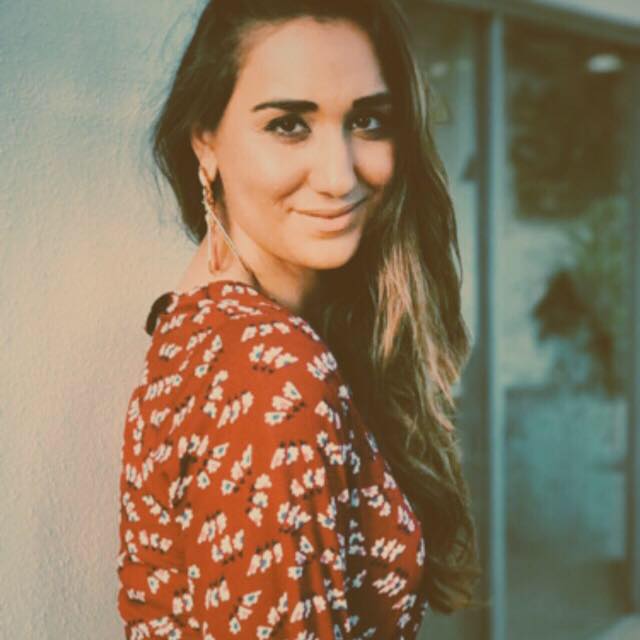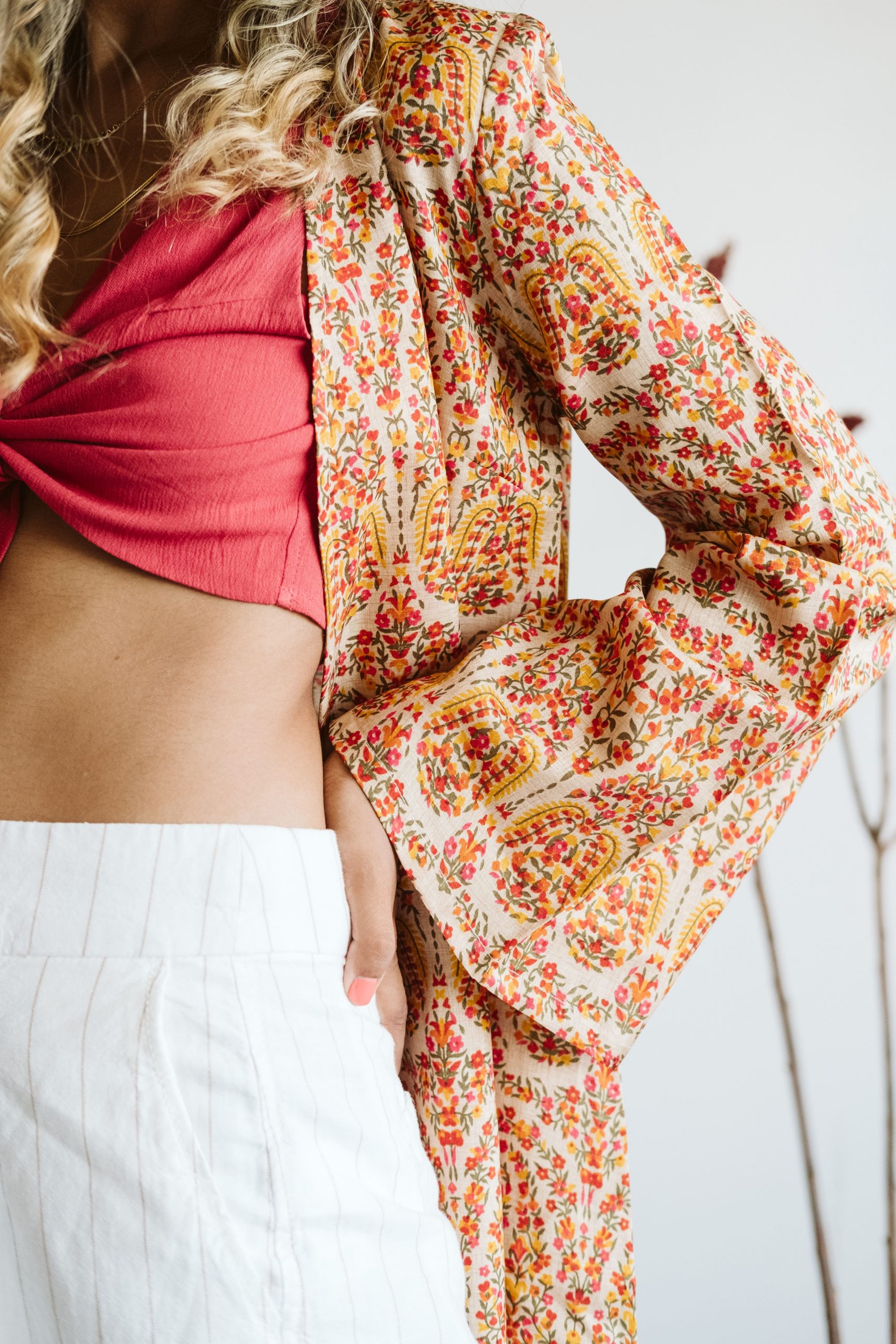Anika Ishrat Mustafiz is the creative genie behind the brand Imagine Violet, a Bangladeshi Canadian who spent much of her formative years in Indonesia. She feeds into her love for textile, design, aesthetics, experimentation, and most importantly – colour!
As a BIPOC woman, she feels that as a pulsating artist, creativity lies in her genes, and with Imagine Violet, it is not hard to believe that there so much creative expression in her products. Imagine Violet has developed its identity through spirituality, creativity, and wisdom. She works with artisans in Bangladesh to empower, train, uplift them on design intervention, from traditional eastern wear to more contemporary wear, all the while using traditional patterns and designs.
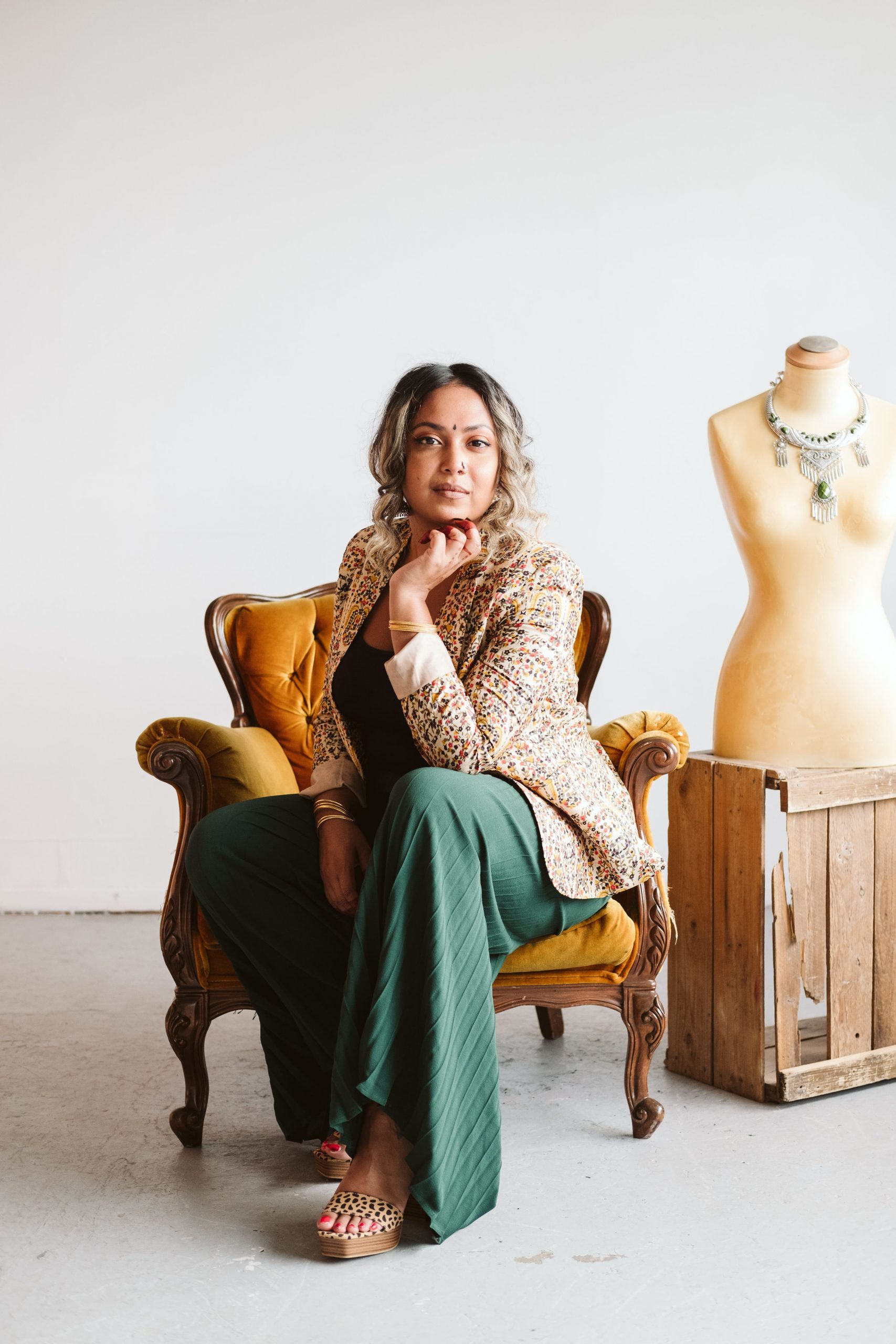
Her collections are unique, therefore limited editions and limited quantity – keeping the exclusivity of the hand-crafted and stitched textiles. The brand’s long-term vision is to train more craftsmen and craftswomen in Bangladesh, allow them to hone their skills, and deliver quality products in the market and keep their craft evolving.
Where did your journey start? Tell us a bit about your education and how art was a part of your life before?
Anika: My journey with art started when I was young, I think I got that from my mother. She is incredibly talented in every way. I know that it became an escape for me as a kid, especially after migrating to North America. I was a very quiet child, and I felt like art was my friend.
When I went to Seneca College to study Fashion Arts, I had a lot of trouble finishing school. I didn’t learn like everyone else, and I struggled with much depression. Imagine Violet started when I was doing visual art and spoken word. I love poetry, and it evolved over the years. I was always afraid to go after my dreams. I always did art and poetry on the side, I gave up my goals as a fashion designer because I thought it was impossible, and I didn’t necessarily feel like I fit in that industry. But over the years, my outlook on life shifted drastically, and I decided that not trying would hurt more.
How important is being a woman of colour and country of origin in bringing this brand alive?
Anika: This is everything to me. I always felt like I didn’t belong in any group, and it took me a lot of understanding to be incredibly proud of who I am and where I’m from. Growing up I felt ashamed of being Bangladeshi Muslim because I was bullied and made fun of and made to feel awkward. I was a threat…I was so many things. Most people didn’t even know what Bangladesh was. But I have to credit my mother. Our ancestry is deep-rooted in politics and the liberation of Bangladesh. My mom always made sure we spoke Bangla at home. She instilled patriotism in us. Also, growing up in such a vibrant culture, I can’t live without colour.
Tell us about your products, what can we shop for online?
Anika: I have lots of products to choose from! I have original digital art and art prints, all illustrated or painted by me. I wanted more options for my customers, such as casual wear, to make apparel (sweatshirts, t-shirts, hoodies, etc) with my own graphics. These products change but are available all year long. The IV Collection is designed by me, from beginning to end. The garment, choosing fabric, sizing, and sending them off to my head tailor in Bangladesh.
The IV collection will be a series of limited quantity designs to keep the feel of exclusivity. Since I’m starting out I have smaller quantities but I hope to expand. Right now, it’s strict with the pandemic as I can’t travel freely. So I’m hoping that when things settle, we can get more consistent collections.
What is your most favorite product, something you put in a lot of creativity in?
Anika: It’s so hard to choose; anything from my IV collection is my favourite! Getting that collection together was…such a journey! I had no idea what I was doing, I bought all the fabric I could find in those prints and had all these ideas, and I had to figure it out. Right now, the Kimono is a hot sell. My prices are very affordable, I should be pricing this a lot higher but I want to build slowly, and I want to encourage people to make better purchases. Eventually, to sustain what I want to do, prices will rise but I don’t want it to be so high that people can’t afford it. A lot of mid-end retailers will have similar prices but different missions.
Are there other partners in the business, not including the craftspeople in Bangladesh? If not, tell me how this is an eco-friendly business that empowers the local craftsmen there? You mentioned that you want to train them further. How do you plan to do so?
Anika: Right now I’m mostly a one-woman show with the help from my mom. This is an ethical business and I hope to move towards eco-friendly products as I grow.. I still have a lot to learn and explore in Bangladesh.
My head craftsman has gotten a lot of business from me, a major thing is not to undercut them. Paying them fairly is really important because it is hard work and my expectations are high. Bangladesh is still a very tricky place to navigate, my mother plays a huge part in helping me with that. We have to work together to come to a balance that works for them and me.
My head craftsmen have been able to train a few more local people and sharpen their skills while producing my second collection, which will come out this year. My orders alone have been able to help him and other people who couldn’t find work, be paid to last them for many months. This makes me happy because, during this pandemic, many people are struggling with their business or feeling forced to work to make ends meet. I’m happy that I was able to help relieve some of that worry with my orders alone.
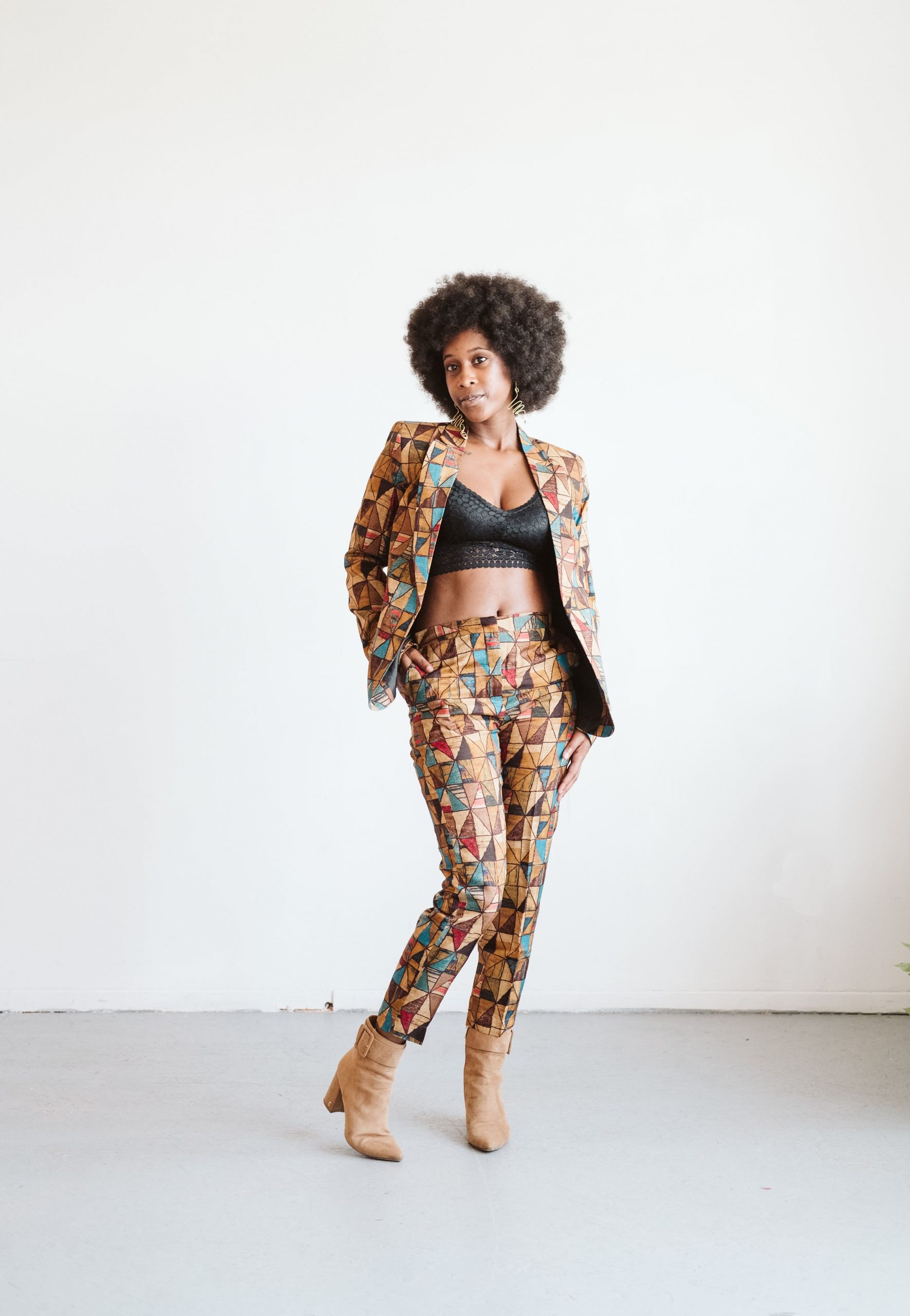
I know that Bangladeshi’s are always proud and empowered when one of their own reaches past Bangladeshi markets. They get really excited that they have a part in that. And they’re proud when one of their own does it. I think when people don’t feel oppressed in their work, it leads to empowerment.
I worked the corporate life and was miserable for years, I felt underpaid, overworked, unappreciated and didn’t want to be there. No one should feel like that, that’s not a way to live. We don’t always have that privilege, so if I can make someone feel excited and happy to work with me, they’ll want to do a good job. You have to let people know how valuable they are but still be mindful that no one takes advantage of each other. I don’t want to get into mass production because I don’t want to lose sight of this. I hope others follow.
Do you have a physical shop, have you exhibited at pop us, fairs, shows or summer markets pre-pandemic? Did you transition online recently?
Anika: I don’t have a physical shop. Everything is online. I hope to get into boutiques one day. I was supposed to launch pre-pandemic, but I really dove into my own business during the pandemic because I lost my job due to covid. So everything is online, post-pandemic, who knows. The possibilities are endless!
Do you have a particular focus on women’s empowerment? Do you speak about societal themes and issues in your works?
Anika: I naturally have many women empowering art. If you take a look at my artwork, it’s all about women. I am a woman myself and I express through my experience. I do write quite a bit, and I hope to share that more in the future. But I try to stay balanced because sometimes we can be polarized as a society., I want people to come together. Everything I do has love as intention. People should be proud of who they are, and where they come from. And learn. Speaking to our elders is magic. Learning history is essential. I want everyone to wear my clothing.
What are the differences between pre-COVID and how have you adapted strategies / transformed your services so they are still relevant now? Revenue-wise, we know it’s tough. How have you been able to adapt and generate sales?
Anika: My life was different pre-covid. I feel like I blossomed during covid because I finally had…time! I never had time for anything. I had a draining full-time job all the time. And did art/poetry/design on the side IF I could find the energy to. I worked in different healthcare environments for about seven years. I was temporarily laid off and forced to stay at home unleashed this creativity and energy in me.
I always had a goal to work for myself. It’s been a learning curve, I’m still working to adapt and generate sales, but I love everything about it. It’s hard, this is not easy, and I knew it wouldn’t be. I’m very fresh in this, and I have many mistakes to learn from, I’m sure and so much growth ahead of me. I’m excited to generate sales and start profiting because it has definitely been a massive investment in myself. I planned on doing all this while working my full-time job because financially, I couldn’t and was too afraid to make the jump…but the universe had different plans.
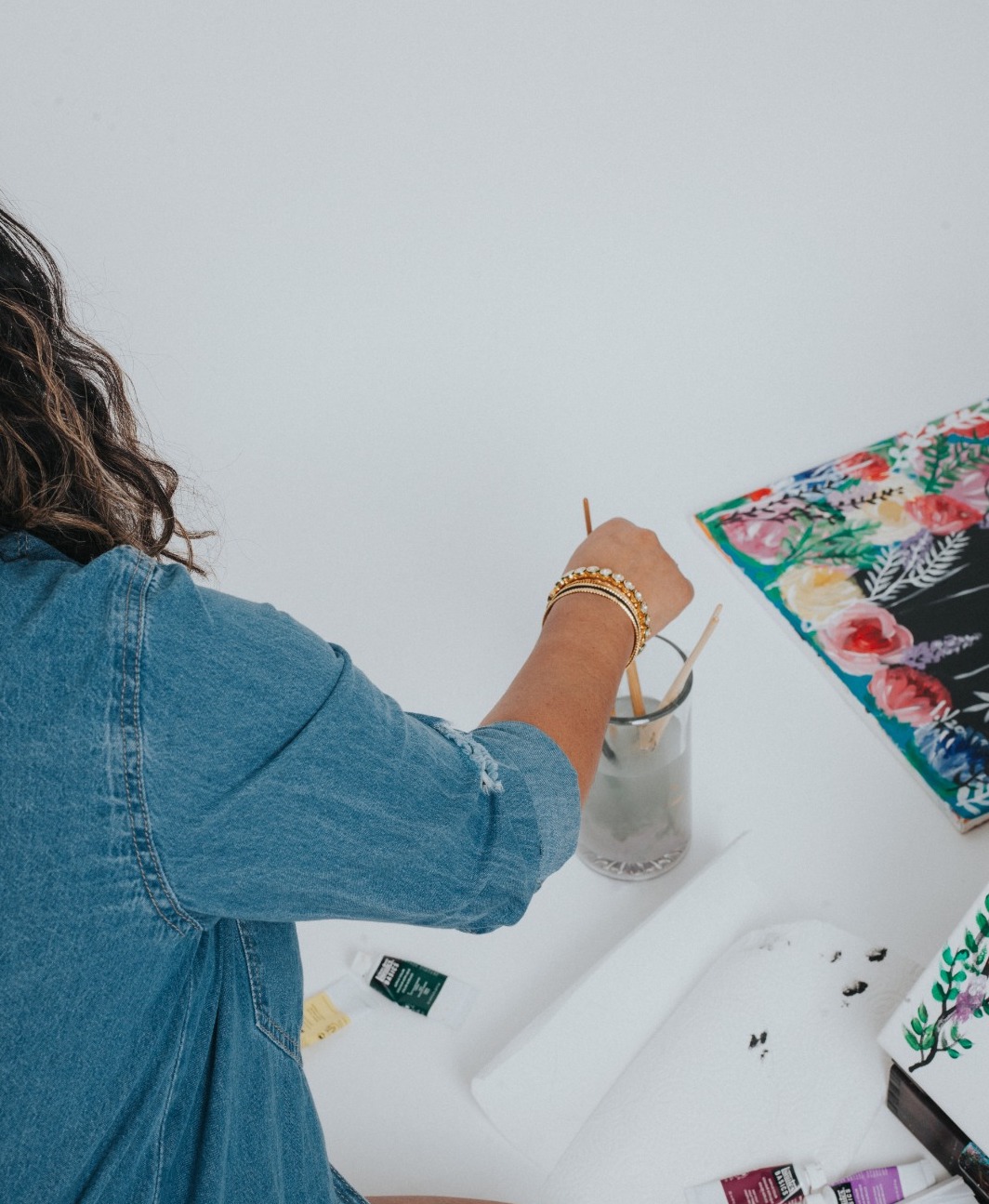
Any words of wisdom steps for those trying to do similar unique businesses, but their strategy/business focus relates to physically being there? What tips in a virtual world?
Anika: Be smart, but don’t be afraid. Making decisions and sticking to it is huge. I don’t think I would have gotten here if I didn’t firmly make decisions. Also, people get intimidated by other people’s success, don’t. People don’t often record their failures. I want to be honest and humble no matter where my success takes me. Know the skeletons of the business, do that in the early stages before you lose yourself. Make clear, definite goals, strategize and execute them
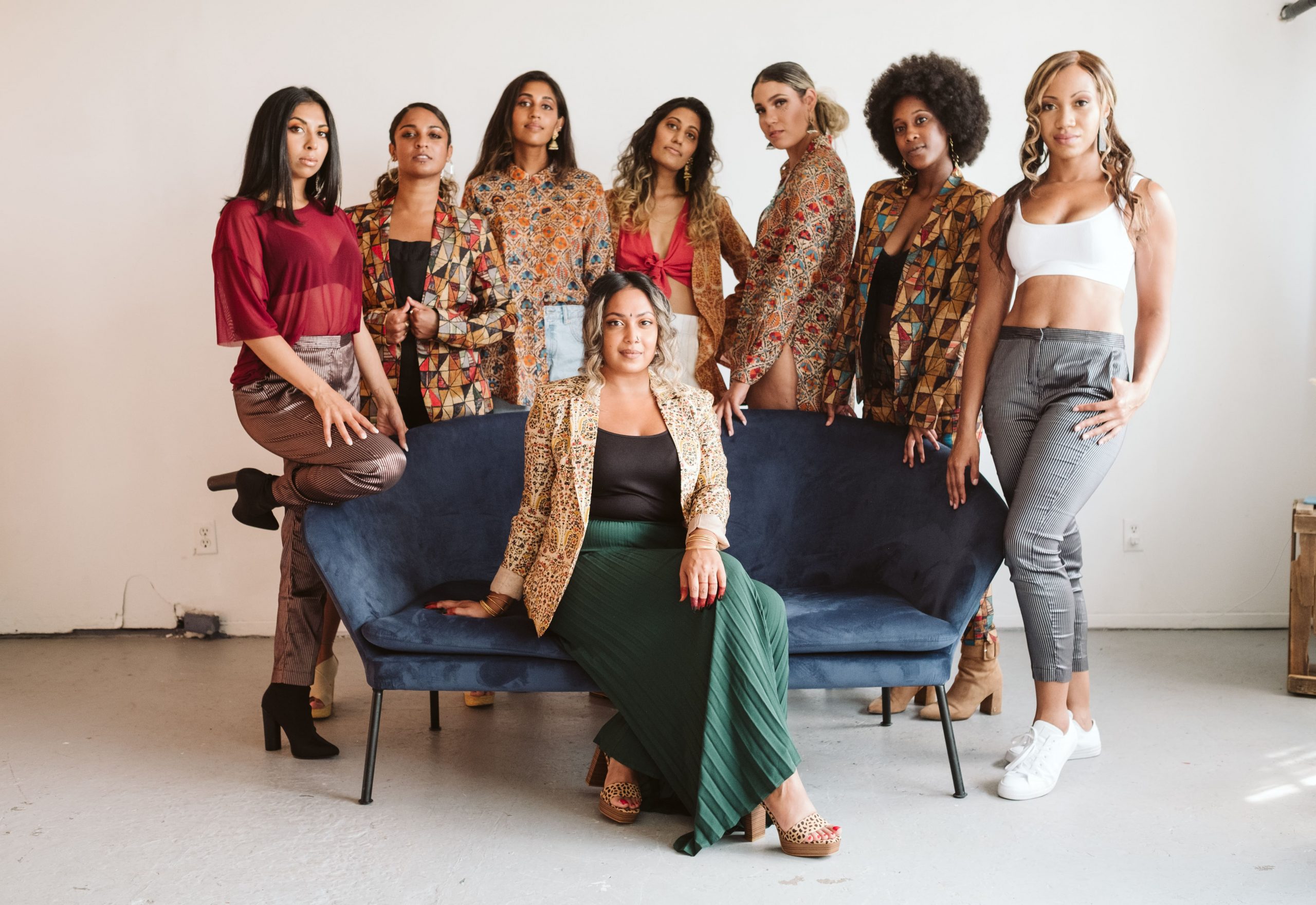
What kind of tools/support is needed to help your business flourish? How do you work out the logistics from Bangladesh to Canada?
Anika: I will be looking into grant funding and microfinancing. It’s a bit tricky, and I am still figuring out all the logistics right now due to covid.. But grant funding is a crucial next step for me. Also, to get into spaces that support businesses like mine and finding customers that do too.
I’m looking forward to networking and letting opportunities find me. The beginnings are very tricky, but I like these steps. It’s essential to enjoy the process.
We love all the products on the Imagine Violet shop. Our personal favourites from the collection have to be the silk and cotton Kimonos. This can be styled up sexy with a bandeau, or worn as a cover-up with cute shorts or pants.
Another fav is a funky Blue Mosaic Blazer, and Pant set and last but not least, the ‘Golden Mama’ earrings. There is so much to pick from customized T-shirts to sweatshirts to printed pants, blazers, and art prints! Anika is one talented woman and we can’t wait for our readers to bring in some summer colours in their wardrobe!
To shop online from Imagine Violet, check out their website and Instagram handles:
https://www.imagineviolet.com/
https://www.instagram.com/imagineviolet/
